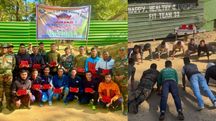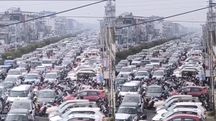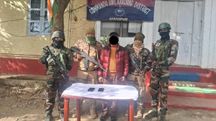Meitei families begin return to ruined homes as Manipur pushes ahead with resettlement
Meitei families return to their homes in Manipur following recent conflicts. The government is actively supporting resettlement and rebuilding efforts to restore normal life

More than two years after ethnic violence tore through Manipur, several Meitei families have started returning to their village of Kangchup in Imphal West district, marking a critical step in the state’s ongoing resettlement efforts. Their homes, once full of life, now lie in ruins — burnt and abandoned since May 2023, when conflict between the Meitei and Kuki-Zo communities displaced tens of thousands.
Over 50,000 people were uprooted during the clashes. Many have lived in cramped relief camps ever since, surviving with minimal privacy and limited access to basic amenities. The government has recently announced its intention to rehabilitate thousands of internally displaced persons (IDPs), raising hopes for a long-overdue return to normalcy.
In Kangchup, families are returning to a landscape of destruction. Charred structures stand as reminders of the violence, but also as anchors of memory — and now, rebuilding. Officials say plans are in motion to reconstruct housing and restore essential infrastructure, although no timeline has been made public for full rehabilitation.
Across the state in the Faijang area of Kangpokpi district, 896 people from 184 families remain in pre-fabricated shelters. Conditions have improved slightly, with basic government assistance in place, but the prolonged displacement has taken a toll. Some residents have left in search of work or education, while many remain caught in limbo.
Residents say the physical needs — food, water, and shelter — are being addressed to a degree, but emotional and psychological scars remain. The lack of access to healthcare, particularly for those from the Kuki-Zo community who can no longer travel freely to Imphal, is a pressing concern. For medical treatment, many are forced to journey to distant cities like Dimapur, Guwahati, or Delhi.
One young man at the Faijang camp, who hopes to become a journalist, highlighted the gap between survival and stability. His concerns go beyond housing and food — he points to education, mental health, and long-term dignity as unmet needs.
The return of displaced families marks a pivotal moment for Manipur. However, without lasting peace, robust security, and equitable access to essential services, the resettlement effort risks becoming a temporary fix rather than a lasting solution.
Copyright©2025 Living Media India Limited. For reprint rights: Syndications Today









